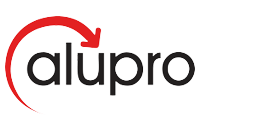Alupro fully supports the Government’s preferred option for an increase in recycling targets, (option 3a) and believes the targets proposed are fair and equitable. Alupro urges the Government to ensure that future targets are ‘stretching but realistic’, and are regularly reviewed.
Alupro proposes a review of targets in 2014 in order to assess the impact of any change of reporting to exclude laminates and composite materials, which would come into effect in 2013, and to ensure the integrity of the PRN system is maintained.
Alupro believes that the Government, and Industry’s ambitions and strategies will deliver recycling rates for beverage cans in excess of 75% by 2017 – this is achievable within the current system and Alupro believes this is a more cost-effective than the introduction of a deposit on packaging containers.
The full text of Alupro’s response follows:
DEFRA CONSULTATION ON RECOVERY AND RECYCLING TARGETS FOR PACKAGING WASTE 2013-2017
The Aluminium Packaging Recycling Organisation (Alupro) is a not-for-profit company which represents the leading aluminium packaging producers and reprocessors/exporters in the UK. These companies recycle or export around 75% of the aluminium packaging collected for recycling in the UK.
Alupro’s role is to ensure that packaging waste recycling targets are met through working with local authorities and other partners, and through public education. Alupro is also the industry body responsible for working with Government on policy issues.
The Aluminium Industry is fully committed to continuing to drive up recycling performance, focussing, where possible, on collection systems which deliver the highest quality material. Indeed, voluntarily, it has invested well over £20 million in the development of collection programmes over the past twenty years. There is more than adequate reprocessing capacity to recycle all of the aluminium packaging used in the UK, collection is challenge!
The Aluminium Industry fully supports the setting of future targets which are fair and equitable across all materials, realistic and challenging, but most importantly, achievable.
Key Points of concern:
Accurately Reporting Recycling Performance:
Alupro’s primary objective is to ensure that recycling rates for aluminium packaging are maximised and that all activity is acurately reported through the PRN system. This is not only to ensure that targets are met under the Packaging and Packaging Waste Regulations, but also vitally important for demonstrating achievement of targets in the Courtauld commitment where end of life recycling rate, measured through the PRN system, is the key metric for metal packaging.
Consequently failure to be able to accurately report recycling performance could have a negative commercial impact on the sector.
Flat targets set over the last three years have resulted in PRN values which are currently at a level which leads accredited reprocessors/exporters to question the commercial value of remaining accredited. Indeed, a number of Alupro’s members have expressed doubt as to whether they can justify the costs of accredidation in the future. One member who was accredited as a large reprocessor last year has chosen not to become accredited in 2012.
Equally market conditions which lead to reprocessors/exporters “dipping” in out of the system as prices rise and fall from year to year due to “apparent” market shortages and excesses, is equally not desirable as this will result in wildly fluctuating recycling rates. This is not only a problem for obligated companies from a budgeting and cost control perspective, but also for Government who will be forced to report national recycling levels which go up and down from one year to the next.
The setting of stretching but realistic targets is critical to creating the conditions when it is commercially attractive for companies to maintain their accreditation.
In order to ensure that targets remain a “driver” for accreditation we believe it is important that they are reviewed regularly; it would therefore be prudent to review them again in 2014.
Accreditation of reprocessors/exporters is essential to the integrity of the PRN based system and the accurate reporting of national recycling performance to the EU and for monitoring performance against Courtauld commitment targets.
We therefore propose that the ACP set up a task force to investigate this important issue and develop and evaluate options to protect the integrity of the system by maximising the accreditation of reprocessors/exporters.
Growth in Recycling Performance:
According to 2011 PRN data to end of Q3, it looks like the volumes of aluminium packaging collected for recycling grew by at least 30%. If this level of recycling and growth is sustained in 2012 and beyond the targets proposed by Government in option 3a will be less challenging.
However, due to serious concerns relating to accreditation of reprocessors/exporters (see above), we believe that it is prudent to set increasing targets as proposed by Government.
Data Uncertainty:
We remain concerned about the accuracy of reporting of aluminium sales data by obligated companies relative to the waste stream data reported by Government and provided to Alupro by our members, the major suppliers to the UK market.
Clearly this data is of critical importance to the setting of business targets.
The Government’s proposal to bring the reporting of the aluminium used in laminates into line with EU Directive could potentially impact upon reported obligated data. The impact will not be known until the first round of reporting under the new system happens in 2013.
Again, we believe this also to be a strong reason to review the targets in 2014.
Deposit Systems:
Alupro fully supports the Government’s conclusions regarding the potential impact of deposit systems on the recycling of packaging in the UK and offers the following observations:
• The Government’s and Industry’s ambitions and strategies will deliver recycling rates for beverage cans in excess of 73% by 2017 and 75% by 2020.
• This will be achieved at a significantly lower cost than would be the case with a deposit system.
• Mandatory deposits typically achieve a return rate of between 70% and 90% in jurisdictions where consumers never lost the habit of taking deposit-bearing containers back to a shop. In the UK as a whole, consumers lost the habit of taking deposit-bearing containers back to a shop two generations ago, when refillable bottles disappeared from the take-home trade. Thus, the return rate would almost certainly be at the bottom end of the scale.
• Hawaii is the only jurisdiction to have introduced mandatory deposits in a market where refillables had already disappeared, and there the return rate was 76% in 2011. As noted above, achievement of Defra’s proposed targets would involve 75% of UK beverage cans being recycle by 2017 – without the need for deposits.
Consultation Questions Responses:
Q1. In your view, are our projections for waste arisings reasonably accurate?
Are you aware of any other factors which may affect the levels of packaging entering the waste stream?
Please provide us with as much evidence as possible to support so we can adjust our figures as necessary.
Alupro: We agree that the aluminium waste arisings figures are the best available. They are in line with the sector’s own projections. We note that figures used by Government still include the aluminium used in laminates and composites which will need to be removed if the Government’s proposal on the treatment of these packaging formats is adopted.
We fully support the setting of “aspirational targets for a period of 5 years to allow investment plans to be made. However, we are concerned about setting “binding” long-term targets based upon data projections.
We propose that the base sales data and targets should be reviewed in 2014 to allow adjustments to be made if current projections prove to be unrealistic.
Q2. In your view, are the predictions for obligated tonnage reasonably accurate?
Alupro: We recognise that the reported “obligated” tonnage for aluminium is the “best source” available, but we remain concerned about possible confusion between obligated companies reporting of aluminium and steel. We have no evidence to support this, but “something” doesn’t feel right when compared to sales data reported by our members.
Due to uncertainty of the exact impact the proposed changes relating to the aluminium in composite/laminate packaging will have on reported data and hence the achievement of business targets we believe that it would be prudent to review the data and future targets to 2017 once the data becomes fully transparent in 2014, following the implementation of the proposal in 2013. This will enable Government to ensure that future targets remain challenging and are in line with Government’s and Industry’s objectives to continue to drive up performance to maximise recycling performance
We therefore believe that it would be prudent to review that data and targets in 2014.
Q3. We would welcome respondent’s views on the proposal to remove composites material from waste calculations.
Please provide evidence to support your answer, so we are in a position to adjust our figures as necessary.
Alupro: We fully support the proposal and believe that it is essential to bring the UK into line with requirements of the EU Packaging and Packaging Waste Directive and to fully align the waste stream figure with the data reported by obligated companies.
We estimate that around 16,000 tonnes of aluminium forms an essential element of certain composite and laminate packs (see below).
Aluminium Composite Market Estimates / Tonnes
Lids on steel drinks cans / 5000
Foil in drink cartons / 4500
Foil in pharmaceuticals / 2500
Other (confectionery, pouches etc) / 4000
Total 16000
Due to uncertainty of the exact impact the proposed changes will have on reported data and hence the achievement of business targets we believe that it would be prudent to review the data and future targets to 2017 once the data becomes fully transparent in 2014 following the implementation of the proposal in 2013. This will enable Government to ensure that future targets remain challenging and are in line with Government’s and Industries objectives to continue to drive up performance to maximise recycling performance.
Q4. Do you support the proposed approach to split the glass target in line with end use and limit the allowable recycling through aggregates?
Alupro: We have insufficient market knowledge to comment on this proposal.
Q5. Do you support the Government’s preferred option?
Alupro: We have fully considered the range of options detailed in the Consultation document. We fully support the Government’s preferred option 3a. We believe that the targets proposed are fair and equitable across all materials.
The proposed targets for aluminium match closely the sectors own model to deliver an overall recycling rate of 65% for all aluminium packaging (excluding laminates and composites) and 80% rate for aluminium drinks cans by 2020.
The Industry is fully committed to maximising recycling performance and the setting of stretching business targets to drive investment through the PRN system; also providing an incentive to reprocessors and exporters to become accredited ensuring that collected material is properly reported and accounted for.
Ends
www.alupro.org.uk
7th February 2012



